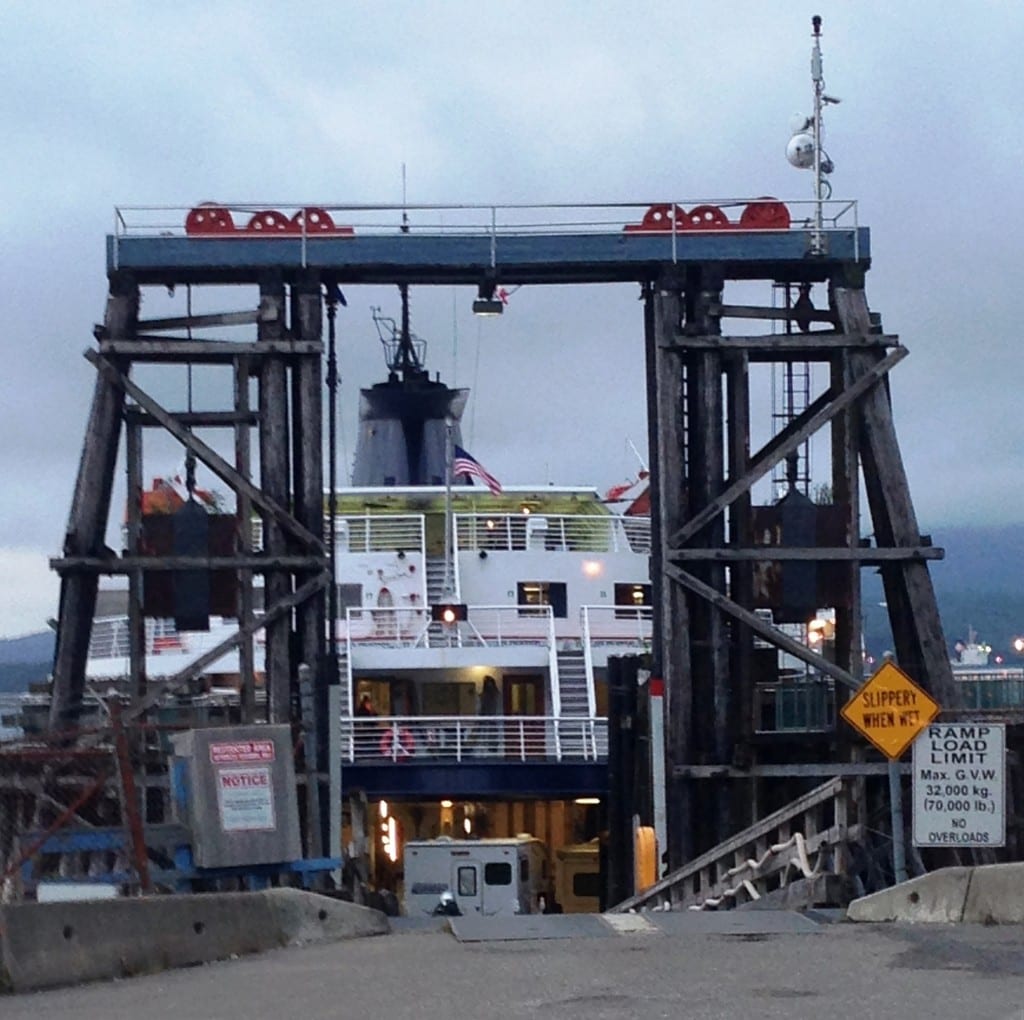
The Alaska Marine Highway System is ending service to Prince Rupert, British Columbia at the end of the month over an impasse with U.S. customs agents demanding armed protection in Canada.
State officials say the decision is unrelated to the ferry system’s budget woes.
“This is all because we have a requirement from the US Customs and Border Protection, that there be a Canadian law enforcement presence,” Alaska Department of Transportation spokeswoman Meadow Bailey told CoastAlaska.
A waiver from this requirement expires September 30 – the last day ferries are scheduled to call on the Canadian port city 120 miles from Ketchikan.
Customs and Border Protection spokesman Jerry McGee says the requirement is mandated across the U.S. He says it’s a safety issue, as it’s legal for the traveling public to carry hunting rifles and shotguns to and from Canada.
“So theoretically our staff are the only staff there that are unarmed,” McGee said Wednesday. “So again, this is for the safety of our traveling public as well as our officers.”
The state ferry system has been exploring options this summer to contract with armed Canadian law enforcement to provide backup for unarmed U.S. agents.

In August, the Alaska Marine Highway System’s chief wrote a letter informing that it could not comply with the mandate.
Royal Canadian Mounted Police is the only police force in the city of about 12,000 and they reportedly aren’t available.
“The city of Prince Rupert does not have local law enforcement,” Bailey said. “The (Royal) Canadian Mounted Police do not have personnel that they can divert away from their normal everyday tasks to be able to meet the vessels.”
Rep. Dan Ortiz (I-Ketchikan) says he and other state lawmakers are still trying to solve the problem.
“Access to Prince Rupert is critical a piece of the Alaska Marine Highway System particularly to southern Southeast Alaska,” Ortiz said by phone, “but it has implications throughout all of Alaska. So I’m not considering this a done deal at all.”
Prince Rupert is a significant transit hub that links Alaska with the Canadian road system. State ferries bring an average of 13,000 passengers and 6,000 vehicles through the Canadian port each year.
Alaska Marine Highway System General Manager John Falvey notified CBP on August 27 that it could not comply with the mandate and that its last ferries were scheduled on Sept. 30.
CBP’s regional operations chief replied in writing on Tuesday.
“While we understand the challenge that the Alaska Marine Highway System (AMHS) had with fulfilling our requirement of providing a law enforcement presence,” wrote Brian J. Humphrey, director of Field Operations in San Francisco, “CBP will always consider the safety of the traveling public and our officers first.”






